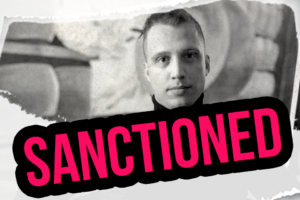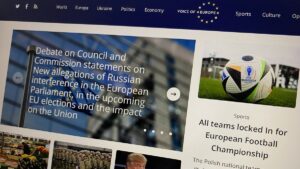The decisions of the EU courts cancelling the freezing of assets of Russian businessmen do not disturb the overall strategy.
The European Union has designed sanctions against Russian oligarchs to put pressure on Russian President Vladimir Putin, but these sanctions face a number of legal challenges.
Most recently, the European Union cancelled travel bans and asset freezes on people considered to be in Putin’s inner circle, including bankers Mikhail Fridman and Pete Aven. This decision is the latest in a series of cancellations.
According to experts, it is natural that these measures, which were taken in economic retaliation for the invasion of Ukraine, would lead to such situations. The EU Council, which brings together member states, says it has imposed Ukraine-related restrictions on some 1,706 individuals and 419 organisations, dwarfing the bloc’s other sanctions regimes.
Among those targeted are President Putin, his officials and media outlets that the EU says spread Kremlin disinformation, as well as a number of wealthy businessmen said to be supporting the war.
It must be proven that he was Putin’s close friend
Two weeks ago the EU General Court overturned a high-profile EU ruling, saying there was insufficient evidence that former Alfa Bank tycoons Aven and Fridman had helped Russian decision-makers or undermined Ukraine.
But Peter Stano, the European Commission’s foreign policy spokesman, said: “The judgements by the EU Courts relate to the legal requirements for specific appointments, not to EU sanctions policy in general.”
“You cannot list people just because they are influential businessmen,” Clara Portela, Professor of Political Science at the University of Valencia, told Euronews: “You have to show that they support the war effort or that they are close associates of Putin.”
Largest Western bank under pressure to cancel investment in Russia







